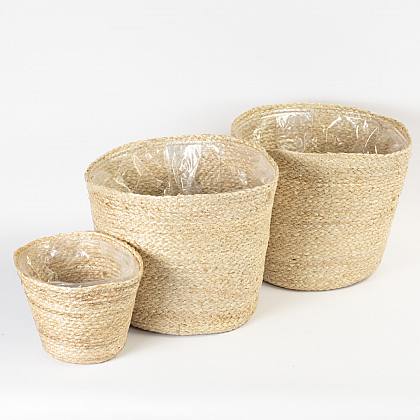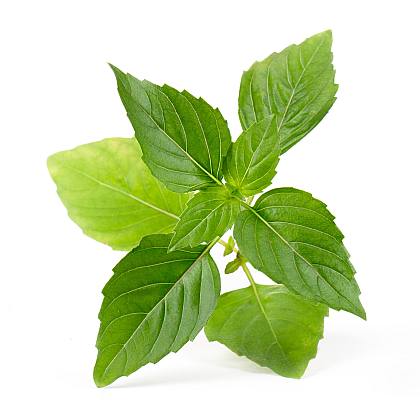Fertilizer for green plants: the secret to lush vegetation
Fertilizer for green plants: the secret to lush vegetation. Would you like to have a garden full of healthy and vibrant plants? Of course! Well, let me tell...
Fertilizer for green plants: the secret to lush vegetation. Would you like to have a garden full of healthy and vibrant plants? Of course! Well, let me tell you, compost is the key to achieving this. This little treasure hidden in bags or boxes has the power to feed your plants and make them grow like never before. In this article, we'll discover together the importance of fertilizer, the nutrients it provides, and how to choose the best one for your plants. In addition, I will reveal some tips to apply it correctly and the benefits of opting for organic fertilizer instead of chemical. Get ready to enjoy an enviably lush garden!
The Importance of Fertilizer for Plant Growth
Fertilizer is an indispensable ally for the growth of our plants. It's like giving them a super magic potion that makes them grow lush and healthy! Who doesn't want that in their garden? Fertilizer provides plants with the nutrients they need for their development, such as nitrogen, phosphorus, and potassium. These elements are like the fuel that plants need to grow strong and resist diseases and pests. Without compost, our plants could run out of energy and become weak, making them more likely to get sick or even die. In addition, compost also improves the structure of the soil, allowing it to better retain water and nutrients. So, in short, compost is like a nutritional smoothie for our plants, giving them what they need to be healthy and radiant. It doesn't matter if you have a small garden at home or a large vegetable garden, compost is essential to keep your plants happy and content. So don't forget to give your green friends that extra dose of love and care with a good compost!
The Essential Nutrients Provided by Green Plant Fertilizer
Green plant compost is like a magic potion that feeds and nourishes our beloved plants. Did you know that it provides essential nutrients for their lush growth? It's unbelievable! These nutrients are like vitamins for our plants, giving them the energy they need to flourish and look radiant in our garden. Among the most important nutrients that fertilizer provides are nitrogen, phosphorus, and potassium. Nitrogen is like an energy shake, it promotes strong and healthy growth of leaves and stems. Phosphorus, on the other hand, is like a vitamin supplement for the roots, strengthening their water and nutrient absorption system. And we can't forget about potassium, which acts as a protective shield for our plants, improving their resistance to diseases and pests. With all these essential nutrients at their disposal, our plants will be ready to dazzle us with their beauty and vitality. So let's not skimp on compost, pamper our plants and let them feast on these valuable nutrients. You'll see how they thank you with lush vegetation!
How to Choose the Best Fertilizer for Your Plants
When choosing the best fertilizer for your plants, it's important to consider several things. First, you need to consider the type of plant you have. Some plants have specific nutrient needs, so it's important to select a fertilizer that contains the essentials for their growth. Additionally, it is advisable to opt for a fertilizer that is slow-release, as this will allow the plants to receive nutrients gradually and steadily.
Another factor to consider is the composition of the fertilizer. There are different types of fertilizers, such as organic and chemical. Organic fertilizers are a great option as they are made from natural materials and are more environmentally friendly. On the other hand, chemical fertilisers are usually faster in their effect, but they can be more aggressive to plants if not used correctly.
In addition, it is important to check the expiration date of the subscription before purchasing it. Using expired fertilizer can backfire on your plants and won't provide the necessary nutrients.
Don't forget to read the instructions for use of the fertilizer before applying it to your plants. Each type of fertiliser may have specific indications on the amount to be used and the frequency of application. Following these instructions will help ensure that you're using fertilizer correctly and getting the best results for your plants.
In summary, when choosing the best fertilizer for your plants, you should consider the type of plant, the composition of the fertilizer and follow the instructions for use. With the right choice and the correct application of fertilizer, you will be able to enjoy healthy and lush plants in your garden.
Tips for correctly applying fertilizer to your plants
Applying fertilizer to our plants may seem like a simple task, but if we want to get the best results, it's important to do it correctly. Here are some practical tips so that you can apply fertilizer effectively. First, be sure to read the manufacturer's instructions for the recommended dosage. Don't overdo it, as too much compost can damage plant roots. In addition, it is important to distribute the fertilizer evenly around the plant, avoiding placing it directly on the leaves or stems. To do this, you can use a small shovel or even your own hands. Another helpful tip is to water the plant after applying the fertilizer. This will help the nutrients to be absorbed more efficiently. Also remember to keep a regular fertilizer application schedule, according to the specific needs of each type of plant. Finally, don't forget to protect yourself properly when handling the fertilizer, wearing gloves and avoiding direct contact with your skin or eyes. Applying fertilizer correctly to your plants will not only ensure healthy growth, but it will also allow you to enjoy lush and beautiful vegetation in your garden. Don't hesitate to try these tips and you'll see how your plants will thank you!
The Benefits of Using Organic Fertilizer Instead of Chemical
Using organic fertilizer instead of chemical fertilizer has numerous benefits for your plants and the environment. First, organic compost is completely natural and contains no toxic chemicals that can harm the health of your plants or soil. In addition, by using organic fertilizer you are contributing to the reduction of water and air pollution, since no harmful chemicals are released during their decomposition.
Another important benefit is that organic fertilizer improves the structure of the soil, increasing its capacity to retain water and nutrients. This is especially useful in areas with frequent droughts, as it allows the plant roots to better absorb the available water and nutrients. In addition, organic fertilizer also helps prevent soil erosion by maintaining a protective layer over it.
In addition, the use of organic fertilizer encourages biodiversity in your garden. By using natural products, you are creating an environment conducive to the life of beneficial microorganisms such as worms and bacteria, which break down the compost and turn it into nutrients available to your plants. This creates a natural cycle of fertilization that promotes healthy and sustainable growth.
In short, using organic fertilizer instead of chemical fertilizer is a safer and more environmentally friendly option. Not only does it provide essential nutrients for your plants, but it also improves soil quality and promotes a natural balance in your garden. So don't hesitate to opt for nature to enjoy lush vegetation and contribute to caring for the planet.
Myths and Facts About Using Fertilizer for Green Plants
The use of fertilizer for green plants can generate many doubts and myths among amateur gardeners. It's important to clarify some of these beliefs to avoid confusion and make the most of the benefits of composting. One of the most common myths is that chemical fertilizer is more effective than organic fertilizer. Actually, both types of fertilizer have their advantages and disadvantages. Chemical fertilizer can provide nutrients quickly, but it can also damage the soil in the long run. On the other hand, organic fertilizer is slower in its release of nutrients, but it improves soil structure and promotes microbial life. Another myth is that too much compost is better for plants. However, this can be detrimental as it can burn the roots of the plants and cause an imbalance in the soil. It is important to follow the application instructions and not exceed the recommended amount. It is also believed that compost is enough to maintain a healthy garden without the need for other care. This is not true, as fertilizer must be supplemented with proper watering, pest control, and regular pruning. In summary, it is important to keep in mind these myths and realities about the use of compost to obtain lush and healthy vegetation in our green plants.
How to Maintain a Healthy Garden with Regular Use of Compost
Maintaining a healthy garden can be challenging, but with regular composting, you'll be able to achieve lush, vibrant greenery. Fertilizer is essential to provide plants with the nutrients they need for growth and development. In addition to providing essential nutrients such as nitrogen, phosphorus and potassium, compost also improves soil structure, which promotes water retention and root aeration. This is especially important in times of drought or heavy rainfall.
When choosing the right fertilizer for your plants, it's important to consider both the specific needs of each species and your own preferences. There are different types of fertilizer, from organic to chemical, each with its advantages and disadvantages. However, opting for organic compost is a more environmentally friendly option and can also improve soil health in the long run.
Applying fertilizer correctly is essential to ensure that plants can make the most of its benefits. It is advisable to distribute it evenly around the base of the plants and then mix it lightly with the soil. It is also important to follow the manufacturer's instructions regarding the amount and frequency of application.
Regular use of compost not only ensures proper nutrition for your plants, but also helps prevent diseases and pests. A healthy, well-fed garden will be more resilient to weather adversities and have a more beautiful appearance. So don't underestimate the power of compost to keep your garden in tip-top condition. Give your plants the love they deserve!
So there you have it, green plant compost is really the secret to achieving lush greenery. Throughout this article we have explored the importance of compost in plant growth, the essential nutrients it provides, how to choose the best fertilizer, and how to apply it correctly. We've also discovered the benefits of using organic fertilizer instead of chemical and debunked some myths about its use. Now that you have all this information, I invite you to reflect on how you can implement these practices in your own garden or green space. What changes could you make? How could you make the most of the benefits of compost for a healthy and beautiful garden? The answer is in your hands, so get to work and enjoy the lushness of your plants!


